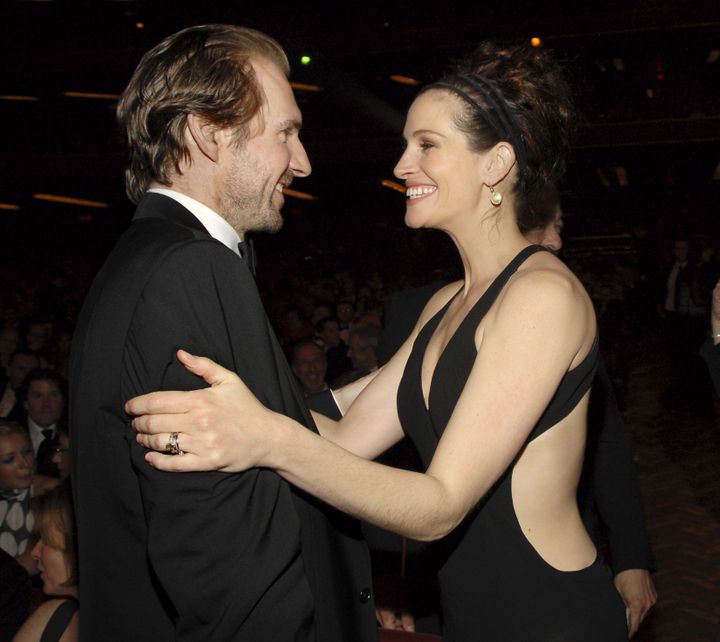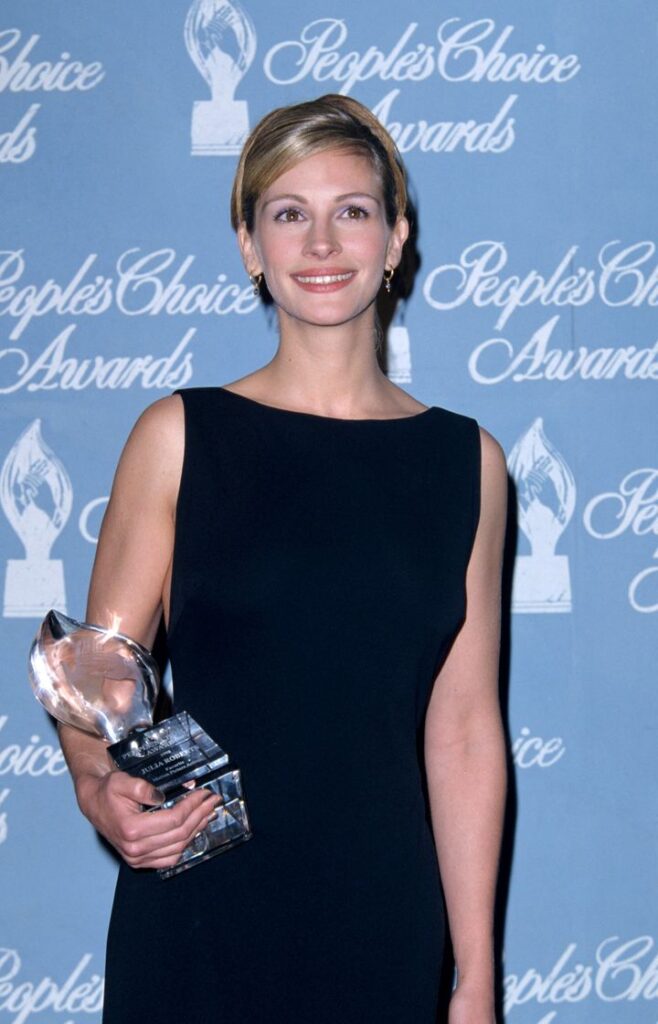“Shakespeare in Love” was the set of Julia Roberts’ discontent. Or at least according to the film’s producer, Ed Zwick.
The “My Best Friend’s Wedding” star, then 24, was initially attached to star in the 1998 period comedy as Viola de Lesseps, according to an essay written by Zwick that was published in Air Mail over the weekend. The part eventually went to Gwyneth Paltrow, who won an Oscar for the role.
But Paltrow would’ve never scored that early career accomplishment if Roberts hadn’t abruptly quit, according to Zwick, causing the project to shut down and “$6 million in sunk costs.”
“I bear her no ill will,” Zwick wrote of Roberts in his essay. “She was a frightened 24-year-old. I wasn’t much older, trying to act the grown-up as I watched the Globe Theatre [set] torn down. And with it my dreams of grandeur.”
Roberts did not immediately respond to HuffPost’s request for comment on Zwick’s account.
Steve.Granitz via Getty Images
Zwick said that Roberts’ early involvement in “Shakespeare in Love” was what secured funding from Universal.
“The mere possibility of having the ‘Pretty Woman’ wearing a corseted gown got the studio excited enough to cough up the dough,” he wrote.
Roberts then traveled to London for chemistry reads with a crop of “yet-to-be-discovered young actors” for the role of William Shakespeare, Zwick said.
“I remember: Hugh Grant, Rupert Graves, Colin Firth, Sean Bean, Jeremy Northam,” he wrote of the actors who auditioned for the role. “Julia found fault with all of them: one was stiff, another wasn’t romantic, and so on.”
Zwick says he was most excited for Roberts to read with Ralph Fiennes. But his chemistry read with Roberts was a “disaster,” according to Zwick.

“Even as Ralph did his best to elicit the famous smile, Julia barely acknowledged him,” Zwick wrote. “I’m not suggesting she was deliberately sabotaging, but it was a disaster nonetheless. I tried to catch Ralph’s eye to apologize as he left, but he couldn’t get out of there fast enough. After he was gone, I turned to Julia, awaiting her reaction. ‘He isn’t funny’ is all she said.”
According to Zwick, the problem was that Roberts was set on having Daniel Day-Lewis play the role, but he was already committed to 1998’s “In the Name of the Father.” But Roberts was intent on pursuing him regardless, Zwick said, and even sent him two dozen roses with a note that read: “Be my Romeo.”
Day-Lewis eventually turned down the offer, and the next two weeks of casting went “badly,” Zwick recalled.
Zwick said he finally talked Roberts into reading with Paul McGann.
“On the morning of the test, Julia emerged from makeup, looking radiant in full period costume,” Zwick wrote. “But once she began to say the words, something was wrong. There was no magic. The problem wasn’t the script. Or Paul McGann. It was Julia. From the moment she began to speak it was clear she hadn’t been working on [her British] accent.”

Steve Granitz via Getty Images
Zwick wrote that he could sense that Roberts felt “discomfort” about the bad chemistry read, but also made “the tragic mistake of underestimating her insecurity.”
“Having only recently been catapulted to the dizzying heights atop the Hollywood food chain, she must have been terrified to fail,” he wrote.
Zwick said he never got the opportunity to “to talk her off the ledge” because, when he called her hotel room the next day, he was informed that she had checked out. Zwick wrote that later that day, he found out from Roberts’ manager that she had flown back to the States and was quitting the project.
“I’ve never spoken to Julia again,” Zwick wrote. “Instead, I’ve observed from afar as her work grew in depth and stature.”
After the shakeup, “Shakespeare in Love” was eventually produced by Miramax and by disgraced producer Harvey Weinstein, who unsuccessfully tried to remove Zwick from the project.
Fiennes’ actor brother Joseph Fiennes eventually nabbed the role of Shakespeare.
Paltrow — who says she had to deal with Weinstein’s predatory behavior — scored the role originally given to Roberts.
But the making of “Shakespeare in Love” continued to be messy after Roberts’ departure, according to Zwick. To read his essay in full, head over to Air Mail.

